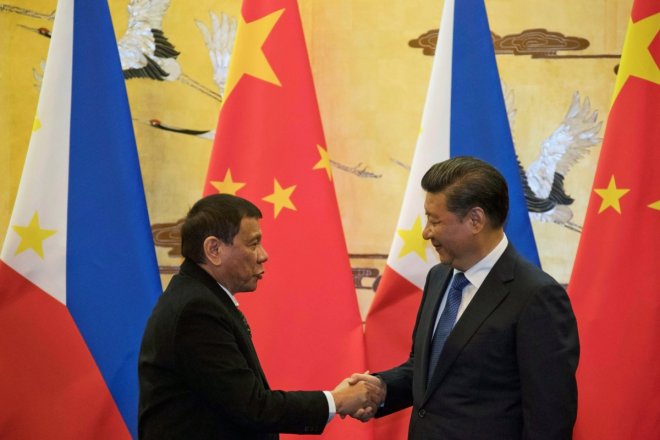
Though Philippines and China are working towards achieving closer diplomatic ties, the Southeast Asian country has denied the claims that it is becoming China's spokesperson to the ASEAN community. This decision came after the China-ASEAN Framework for the South China Sea's code of conduct was initiated.
Undersecretary Ernesto Abella, the Philippine president's spokesman, denied social media reports that the Philippines is virtually becoming the spokesman of China's position to the ASEAN community. Abella said those reports were overly interpreting the moves of the Philippine government. He also clarified that the Philippines, serving as the chair of the ASEAN community, was mandated to come up with an ASEAN communiqué that is acceptable to the Southeast Asian nations.
The issue that the Philippines is becoming China's mouthpiece came into light when Philippine Foreign Affairs Secretary, Alan Peter Cayetano, said that land reclamation and militarization should not be incorporated in the communiqué – a stand taken by China,
Vietnam representatives challenged Philippines and urged the ASEAN community to rally behind Vietnam to contest the expansion of China's infrastructure and the outposts on the disputed islands in the South China Sea.
Moreover, US, Japan and Australia called on China and ASEAN nations to refrain from land reclamation, construction of military outposts and militarisation of maritime.
The South China Sea is one of the richest maritime resources in the region, with rich gas reserves, and has been issue of conflict between China and various Southeast Asian countries, like Vietnam, Brunei, Malaysia, China, Philippines and Taiwan, after the former claimed 90 per cent of the 1.35 million square miles water.









